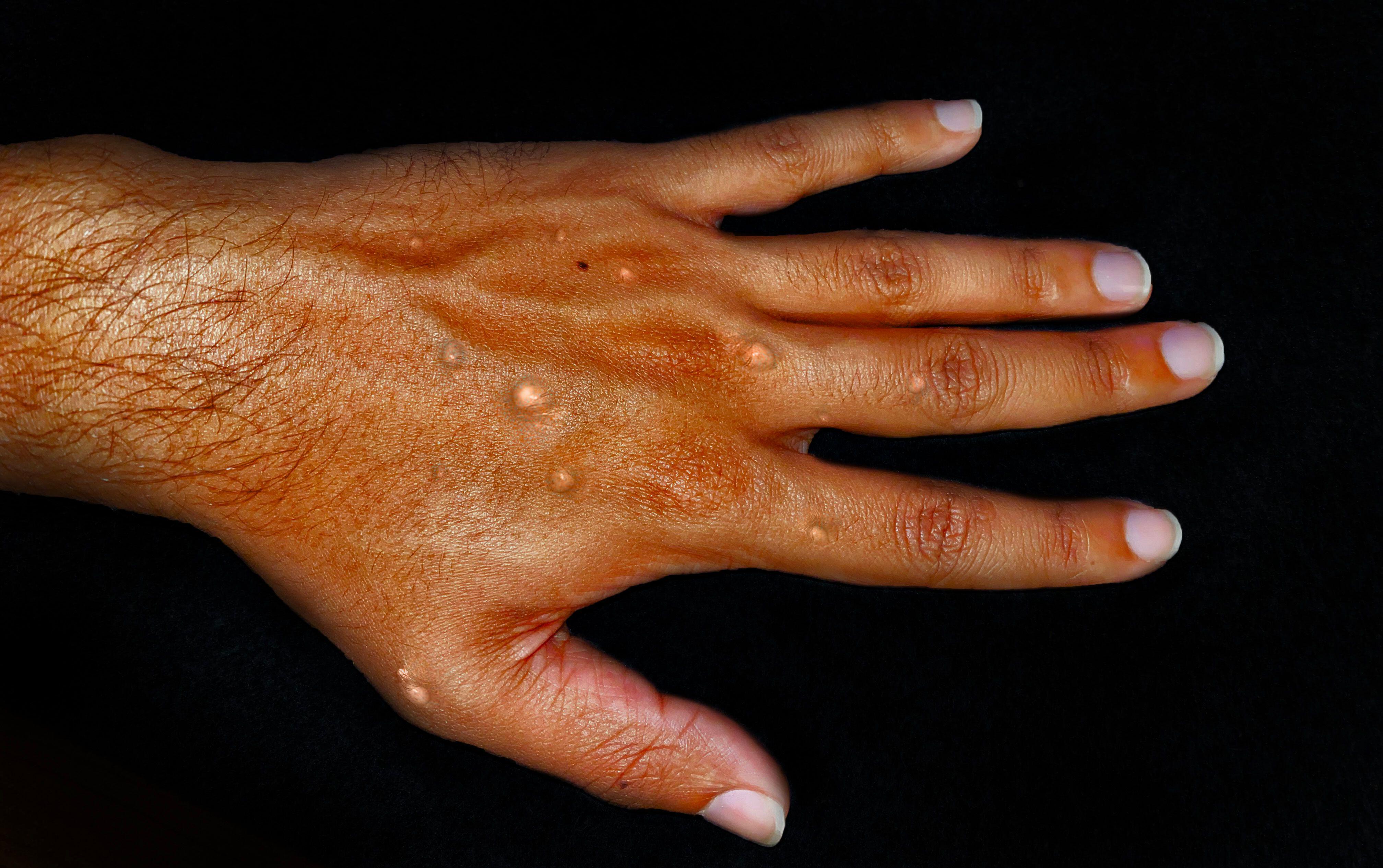Monkeypox: 43 new cases recorded in UK
House holds told to eat and sleep in different rooms to someone with monkeypox in new guidance

Your support helps us to tell the story
From reproductive rights to climate change to Big Tech, The Independent is on the ground when the story is developing. Whether it's investigating the financials of Elon Musk's pro-Trump PAC or producing our latest documentary, 'The A Word', which shines a light on the American women fighting for reproductive rights, we know how important it is to parse out the facts from the messaging.
At such a critical moment in US history, we need reporters on the ground. Your donation allows us to keep sending journalists to speak to both sides of the story.
The Independent is trusted by Americans across the entire political spectrum. And unlike many other quality news outlets, we choose not to lock Americans out of our reporting and analysis with paywalls. We believe quality journalism should be available to everyone, paid for by those who can afford it.
Your support makes all the difference.43 new cases of monkeypox have been identified, bringing the UK total to 366.
There are 348 cases in England, 12 in Scotland, two in Norther Ireland, and four in Waless, according to the UK Health Security Agency.
The public health authourity is advising people to contact sexual health clinics if they have a rash with blisters and have either had close contact with someone with monkeypox or have been to west or central Africa in the last three weeks.
On Tuesday UKHSA released new guidance advising households where someone has been infected to sleep and eat in separate rooms and use separate bathrooms if possible.
It added: “Where the use of a separate room isn’t possible, cases should avoid physical contact and keep at least 3 steps (1 metre) away from all household members. It is particularly important that they avoid close contact with young children, pregnant women and immunosuppressed people as they may be at higher risk of serious illness.
People with monkeypox have been told they should not end thier isolation until 72 hours have passed without a high temperature, all leisions have scabbed over and a fresh layer of skin has formed, no new leisons have formed in the previous 48 hours.
Dr Susan Hopkins, chief medical advisor at UKHSA said: “Self-isolation is an important measure for protecting others from Monkeypox.
“Staying at home and doing all we can to avoid close contact with other people in the household will prevent the spread of this virus.
“We know that self-isolation is not easy for some so it’s important that people ask for support if needed.”
Join our commenting forum
Join thought-provoking conversations, follow other Independent readers and see their replies
Comments